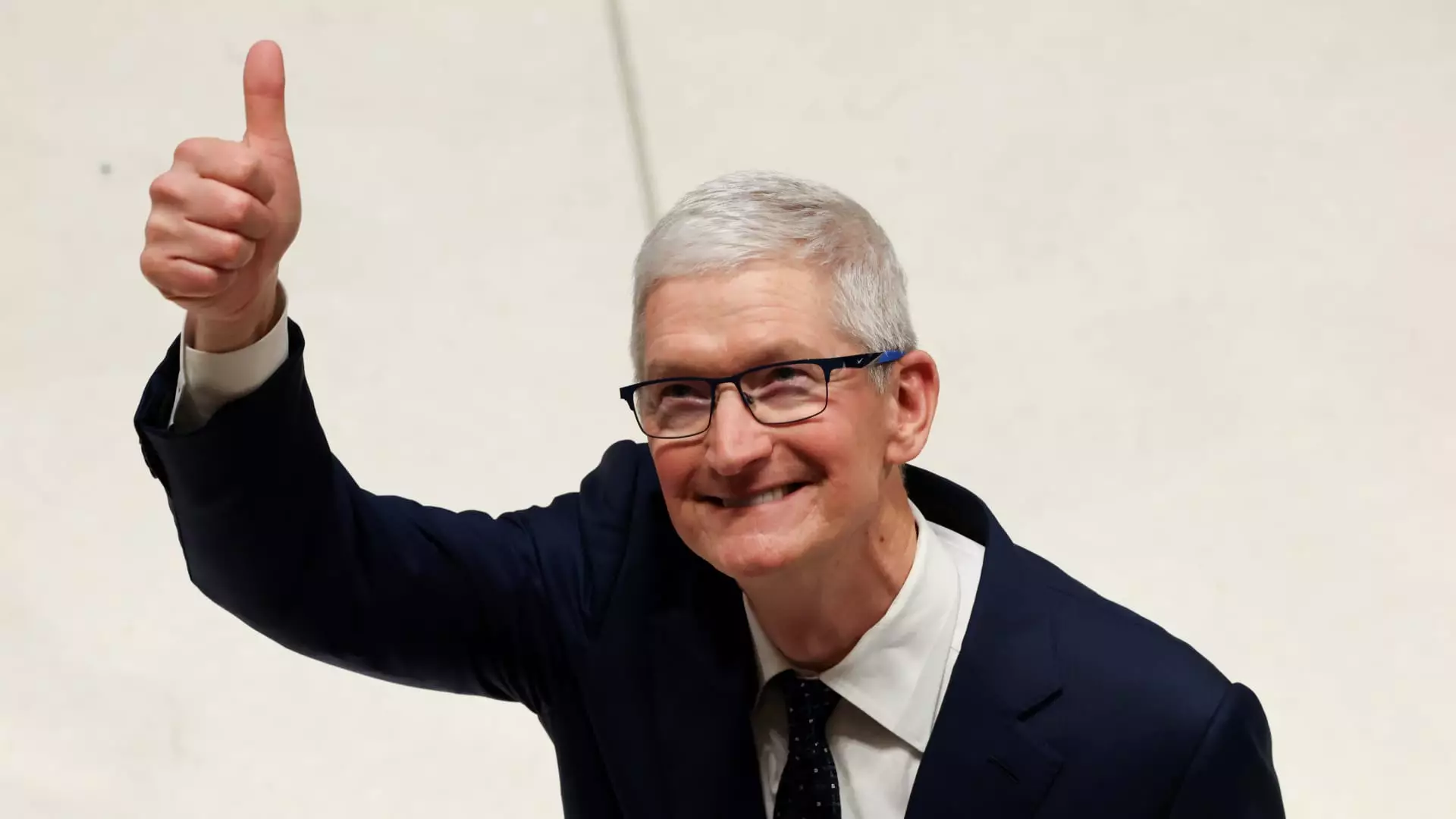In a notable victory for the tech giant Apple, the UK Investigatory Powers Tribunal recently ruled against the British government’s attempt to keep the specifics of a legal appeal hidden from public scrutiny. This case centers around the controversial demand for Apple to create a backdoor into its encryption architecture, enabling authorities to access sensitive user data. In an era where privacy seems more fragile than ever, this ruling serves as a clarion call for the tech industry and privacy proponents alike — defending the sanctity of open justice against governmental overreach.
The court’s ruling, which deemed that secret hearings would violate the principle of open justice, signals a profound recognition of the dangers posed by unchecked government power. Rather than shrouding the case in the guise of national security, the judges emphasized transparency as a fundamental postulate of democracy. Interestingly, this attitude correlates with the belief that open discourse around data privacy and security is essential for societal progress. It’s a profound reminder that the essence of democratic societies lies in accountability, especially when citizens’ rights and freedoms are at stake.
The Threat of Backdoors and Encryption Weakening
Historically, governments have expressed growing discontent with end-to-end encryption, a technology designed to protect user data. They argue that secure communications provide a shield for the heinous actions of criminals and terror groups. This discourse, however, overlooks the critical implications of sacrificing personal privacy on the altar of security. The UK’s Investigatory Powers Act of 2016 gives authorities leverage to compel tech companies to introduce vulnerabilities, or “backdoors,” to their encryption systems.
The result? A precarious balancing act ensues—where society is torn between enhancing security and preserving fundamental rights. Apple’s rebuttal against these backdoor demands is not merely a corporate stance; it embodies a broader commitment to protecting user privacy and data integrity, acknowledging that compromising security could endanger millions of users. Ultimately, these backing practices remain unpalatable as they assure citizens that their private lives remain untouched by intrusive governmental scrutiny.
Apple’s Stance: Privacy Over Compliance
Perhaps the most critical aspect of Apple’s resistance is its unwavering commitment to privacy. In February, amid governmental pressure, Apple found itself cornered, ultimately withdrawing its Advanced Data Protection (ADP) system from UK users. This disheartening move highlights the dire consequences of allowing authoritative entities to infringe upon the rights of both tech companies and their user base. A direct consequence of excessive governmental demands, this withdrawal represents a significant setback for users who have come to rely on Apple for uncompromised security.
Moreover, Apple’s declaration, asserting it has “never built a backdoor or master key to any of our products or services and we never will,” demands consideration. This statement is not simply legal jargon; it’s an assertion of identity that resonates with consumers who place a premium on privacy. In a world inundated by data breaches and cyber threats, this commitment means everything, as users seek assurance that their personal lives remain shielded from prying eyes.
The Broader Implications for Digital Rights
The repercussions of this ruling extend beyond Apple and the UK—it sets a powerful precedent for global digital rights. The ongoing tug-of-war between governments and tech companies over user data will undoubtedly intensify. Proponents of civil liberties should view Apple’s victory not just as a win for the company but as a compass guiding the future discourse on privacy rights.
As we witness governments pushing for more extensive surveillance capabilities, the commitment to privacy must be more than a corporate mantra; it must become a collective ethos. Valiantly defending against governmental encroachment is not just an act of corporate defiance; it’s a call to arms for individuals worldwide. Advocates for privacy rights must rally together to resist the slow erosion of personal freedoms under the guise of national security.
In an age where the digital realm is an extension of our private lives, this ruling serves as both an alarm bell and a rallying cry to safeguard what remains sacred.

